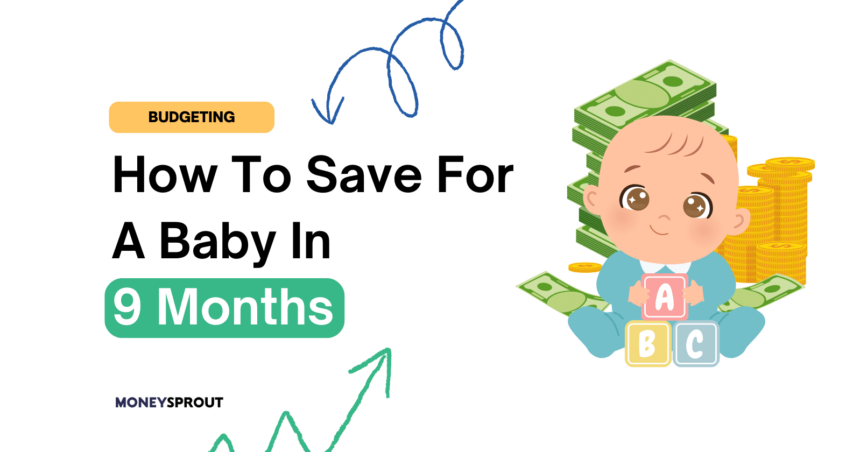When a baby is on the way, it takes a fair share of planning. Nine months might feel like a long time, but that period will pass quickly.
One of the main aspects of planning for a baby is considering the financial implications involved. Expectant parents must have sufficient means to welcome the new family member without feeling strained or burdened. Naturally, there are the immediate necessities, like baby clothes and a cot, but also planning for the new arrival’s long-term future.
Main Expenses When Having A Baby
It’s natural to focus on the most basic baby gear: a pram, a cot, baby clothes, and so on. After all, any baby has to eat, sleep, and be warm and comfortable. Therefore, these will be the first and often most substantial financial hit. But financial preparations extend beyond the visible, tangible items that you must buy as soon as possible. Some expenses are less obvious than others but matter just as much.
The Big Expenses
In the U.K., the NHS covers plenty of the healthcare expenses, but not all of them. There might be private healthcare costs if you decide to go the private route, for example.
Also, your employer might not offer full pay during maternity or paternity leave. This is unfortunate, but it’s within their scope to decide. However, it could create a gap in your income that you have to cover nonetheless.
Daily Expenses With a Baby
Having a baby means ongoing expenses that couples weren’t subject to before. You need nappies, wipes, feeding supplies, baby-safe toiletries, clothes, and other items. These items can quickly add up and form a significant part of your family’s budget. The mentioned baby supplies will cost you around £100-£200 every month. That might not sound like much, but those are the ongoing costs, not counting possible big expenses.
To put it into context, a baby cot can cost from £100 for a basic one to over £500 for a convertible cot that grows with the little one. As for a pram/stroller, it might be £150 for one on the cheaper end, to as much as £800 for fancier models. Don’t forget about a car seat, either. One of those might be between £80 and £200.
Babies grow so fast, it’s almost impossible to keep up. Their clothes will need replacing on a regular basis. The same goes for other gear, like strollers or baby baskets. However, using handed-down clothes and gear from friends and relatives can substantially reduce these specific costs.
The Little Extras That Add Up
When planning out your budget for a baby, remember it’s the little things that might be most likely to catch you by surprise. Children’s needs are different to those of adults. The less obvious costs can add up faster than you might expect.
For example, it might be baby-proofing the house, like putting protection around power outlets, something crawling infants tend to be curious about. Or it could be higher utility bills with all the extra laundry and heating during the child’s formative years.
Build a Financial Cushion
It might sound boring but the trick to saving for a baby lies in budgeting and cost management. It doesn’t have to be substantially different from the budgeting you might already be used to, but takes a little more thought and attention.
Look carefully at your current financial situation and possible extra sources of income or expenses that are unrelated to the baby. Then, you have to adjust your spending and saving habits accordingly to fit within this financial situation.
Build A Baby Budget
If you want to build up a financial cushion, start with simple budgeting. Track your current spending to know where you might cut back or move some money away from other expenses to those related to the baby. Have a dedicated baby budget, too. It will help you set funds aside that you won’t touch, no matter how tempting it might be.
Cut Costs
As touched upon earlier, another way to save money is to dress the baby in second-hand or hand-me-down clothes. There’s nothing unusual about this. Babies quickly outgrow their clothes. It’s not money-savvy to only buy new baby clothes and other gear. Not to mention, it’s more eco-friendly, and that’s always a plus for the environment and reducing your carbon footprint.
Extra Income
While side hustles and freelancing might not be the first thing you want to think about when expecting a baby, give it some serious thought. If you’re low on money but have some sought-after talents, like digital art or content writing, give them a go. It could help you save a decent amount of extra money for the baby. Alternatively, you can sell things you don’t need anymore, especially if it’s something rare or retro.
Prepare for the Unexpected
One certainty about such a major life event as having a baby is that you must be prepared for the unexpected. Babies bring many hidden costs, so it’s a good idea to have an emergency fund that will make you feel more comfortable, even if unexpected expenses pop up. The emergency fund can cover such costs as extra medical bills, transport, or any over miscellaneous expenses.
Insurance
Health and life insurance can be a great help when you have a baby. Getting sufficient cover means that you and your family can have peace of mind and a degree of guaranteed stability, even in unforeseen circumstances.
Beyond the Baby Years
At first, you’ll naturally focus more on immediate costs. That’s understandable, but you’ll also have to consider the long-term implications from the outset. As the child grows, the money you need to support them changes.
Start a savings account for the child that won’t be touched until the baby years are over. Even if you only add a small amount each week or month, it will add up and create a financial foundation for your kid’s future.
One of the biggest expenses is education. It can mean higher education, like university, but it can also apply to expenses that come sooner. After all, books, school gear, trips, and more don’t come cheap. Estimates show that raising a kid from baby to a young adult will cost approximately £223,256.
Making the Most of Maternity and Paternity Benefits
There’s one neat way to potentially save up easier for a baby: maternity and paternity benefits. If you can get your hands on some of these provisions, you should make the most out of them. Maternity and paternity benefits aren’t simply about time off. Although, you can use the leave period for a side hustle or to chase an alternative source of income.
But you might also get financial support during this period. Some employers offer great packages, while others might offer less. For that reason, it’s worth finding out what support you might be eligible for and the necessary procedure. And while you’re at it, check for government benefits, as you might be entitled to these, too. That’s especially true for families struggling financially or for marginalised groups.
Smart Shopping for Baby Essentials
Shopping for the little ones is certainly entertaining and can add to the thrill of expecting a baby. Still, the wealth of choices might be overwhelming for some. When trying to save up, turn yourself into a smart shopper and don’t give in to impulse purchases, even when you spot the cutest items imaginable. Figure out what you really need versus what’s simply nice to have. Remember that sales and discounts can be your best friend when stocking up on baby supplies, and so can the second-hand items mentioned before.
Support Network
If your family pitches in, it can make a huge difference to how much you can save for your new baby, even if the contributions are relatively small. But remember not to put too much pressure on them.
While a support network might not necessarily provide financial support, it is absolutely worth building. It helps in more ways than just your direct finances and might help you save up for the future. Aside from financial support, there are also practical benefits to consider, like swapping baby gear or sharing tips on deals and discounts. Plus, friends and family can step in and help with the baby sometimes, saving you on nanny costs.
The Emotional Side of Financial Planning
Let’s not forget the emotional side of all the financial planning. It’s normal to feel a little stressed out about money with a baby on the way. That’s especially true if you’re new to parenting. It may be hard, but try to take it one step at a time. Only implement strategies that seem feasible. For example, if you’re not in a position to freelance, that’s perfectly fine. If the emotional aspect gets too tough, reach out to your support network. If the anxiety isn’t going away, it’s alright to reach out to a professional for help.
Wrapping Up
Preparing financially for a baby in nine months is a challenging but achievable goal. It requires careful planning, smart budgeting, and a proactive approach to managing expenses. By focusing on both immediate and long-term financial planning, you can ensure that you are well-prepared for the arrival of your new bundle of joy.
With the right saving ideas and a bit of financial savvy, you can prepare for the baby far easier than it might appear at first. It certainly takes patience, planning, and a bit of creativity, but the rewards are immeasurable. As you enter this new phase of your life, remember that each step you take towards financial readiness is a step towards a happy future for your growing family.
Read More From Money Sprout:




